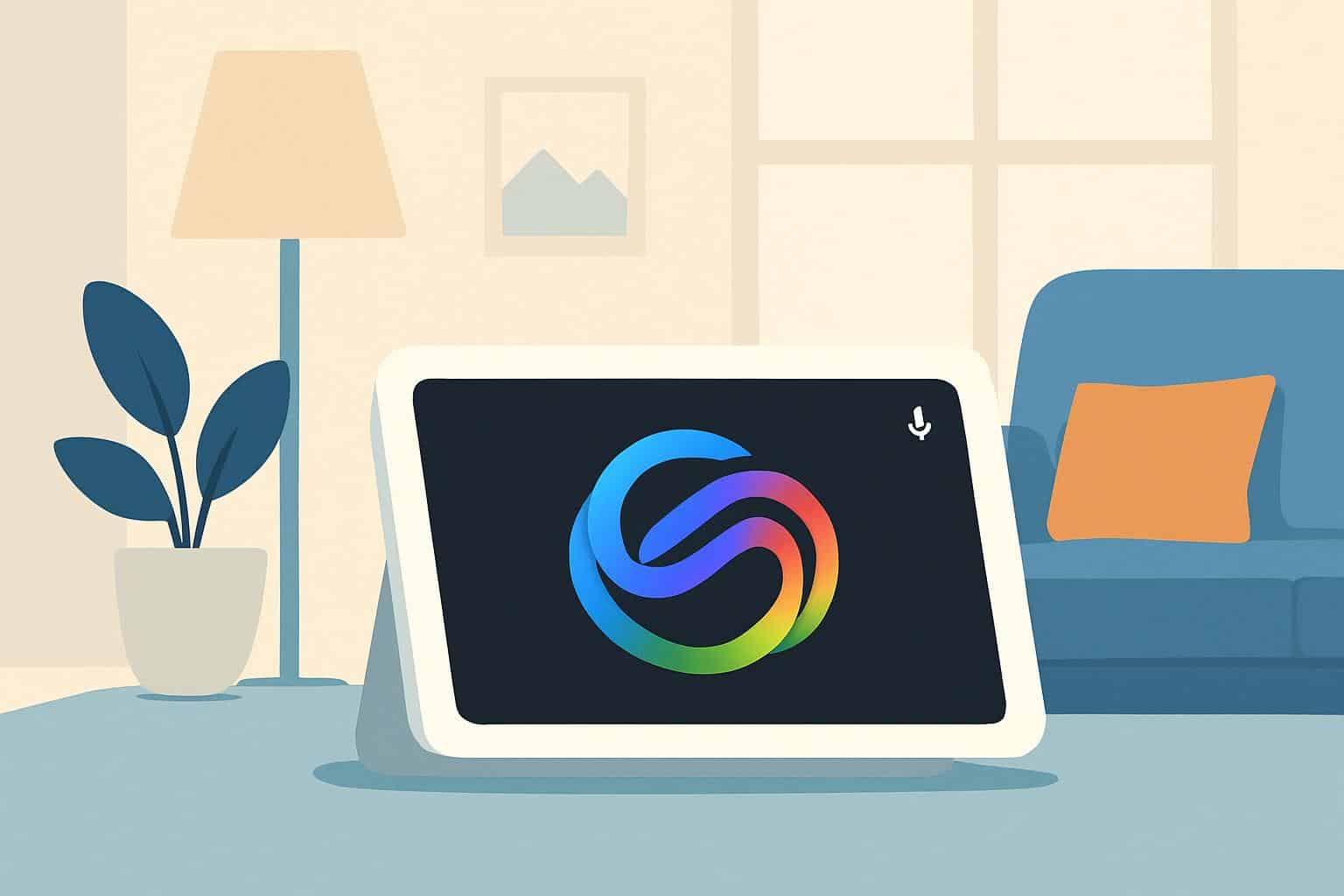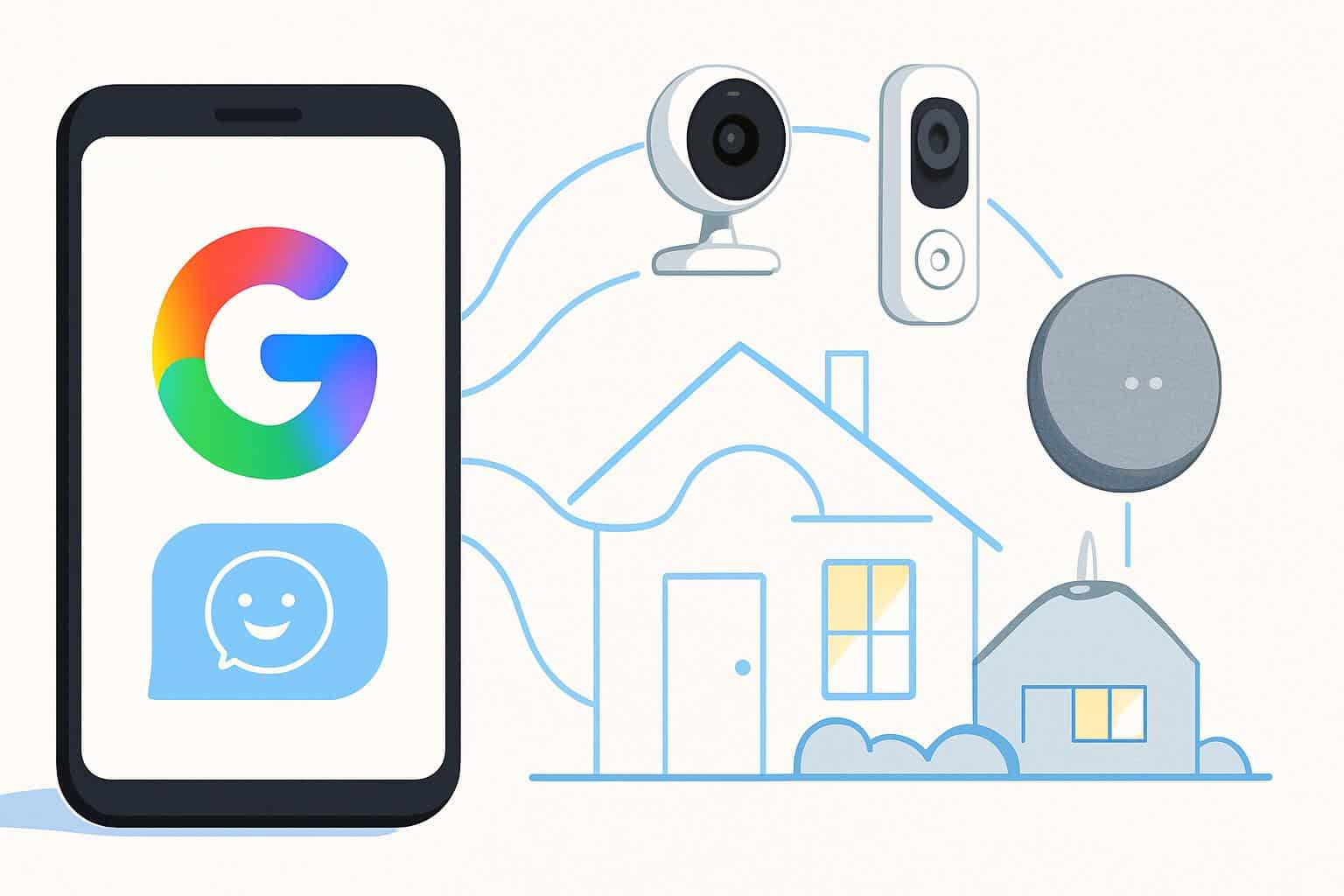Google is introducing conversational AI to the Google Home app and, soon, home devices with Gemini for Home.
The company announced Tuesday that it has started rolling out its next-generation language model to select users in early access, called Gemini for Home. At the center of the effort is Ask Home, a natural-language capability that lets you ask your cameras, doorbells, and other connected gear questions as if you were chatting with another person.
- What Gemini for Home can do across your devices
- How to join the Gemini for Home early access program
- Where Gemini for Home early access is arriving first
- Why this matters for smart homes and daily use cases
- Privacy and controls for Gemini for Home in Google Home
- What to watch next as Gemini for Home grows and evolves

What Gemini for Home can do across your devices
Ask Home searches across device activity and video history with plain English prompts. With voice, you don’t need to scrub through a timeline; you can just say “Show me packages that were dropped at the front door,” or “Which lights were left on when I left?” and receive that information directly, or see the relevant clip.
Gemini also adds context-aware notifications. Instead of generic motion alerts, the system can create short, AI-written descriptions like “A courier left a box by the front door” or “The garage door opened and closed one time.” The Home Brief closes the loop on this, recapping some of those moments from your home so you can catch up easily.
Behind the scenes, Google is employing so-called multimodal Gemini models to make sense of not only video footage but also sensor data and the history of routines. Long-context understanding enables the assistant to reason across time, allowing it to answer complex questions better than traditional keyword-based search.
How to join the Gemini for Home early access program
You enroll within the Google Home app. Update to version 4.0 or higher, go into Settings, tap Early Access, and opt in. Some people are getting an activation email on opening the app saying that their Gemini feature is live, and then Ask Home and other stuff pops up in the phone app.
Crucially, this early access train is different from the Google Home public preview program. Even if you participate in the public preview, you’ll have to opt in to Gemini for Home separately in order to check out the AI stuff.
Where Gemini for Home early access is arriving first
The first wave will center around cameras and doorbells, with availability starting in the United States, Canada, the United Kingdom, Australia, New Zealand, and Ireland. Google says the new capability will then be expanded to other countries after initial rollout in the U.S.
Like any staged rollout, the switch won’t flip for everyone at once. Look for that to scale device by device and region by region as Google proves out performance and tests capacity.

Why this matters for smart homes and daily use cases
Natural-language control is a welcome step for home automation, which can be defeated by its own cumbersome app-level navigation and scattered device ecosystems. The firm Parks Associates says that over half of American internet households today have at least one smart home device, and ease of use is an important part of what makes these devices satisfying to use every day.
Gemini for Home’s goal is to minimize that friction by making chores like sifting through camera logs or seeking the right automation fast queries. If well executed, it could go a long way in bringing order to a myriad of routines across lights, locks, thermostats, and cameras without forcing users to think in terms of menus and toggles.
Privacy and controls for Gemini for Home in Google Home
According to Google, Gemini’s capabilities are designed in a way that honors any Home permissions and account-level settings that already exist. That means your camera history, familiar face recognition, and event storage preferences still apply, and you can delete clips, clear queries, and turn off features you don’t want.
To improve your results, check to see what video history and notification sensitivity options you have in the Home app. Further refining these controls will make the AI generate cleaner summaries and fewer alerts that you would prefer not to encounter.
What to watch next as Gemini for Home grows and evolves
Three questions will determine the impact of the rollout:
- Reliability
- Cost
- Integrations
Indeed, users will expect fewer false positives and more accurate results than what conventional motion alerts can provide. Price is another consideration, as in the past advanced camera features could be premium and could also require an ongoing subscription — so buyers will want to know what’s included.
Lastly, the manner in which Gemini for Home interacts with current Assistant routines on speakers and displays will be a concern as well. We’ve already got a solid foundation of voice commands — automations are very powerful; having the summaries generated by Siri handoff would transform the Home app into an all-out command center for the whole home.
For now, it’s first-contact jitters for early-access users who want to see what the future looks like when their smart home starts talking back. If Google can keep up and remain accurate, transparent, and fast, it may be one of the more useful applications for its AI toolbox to date.

